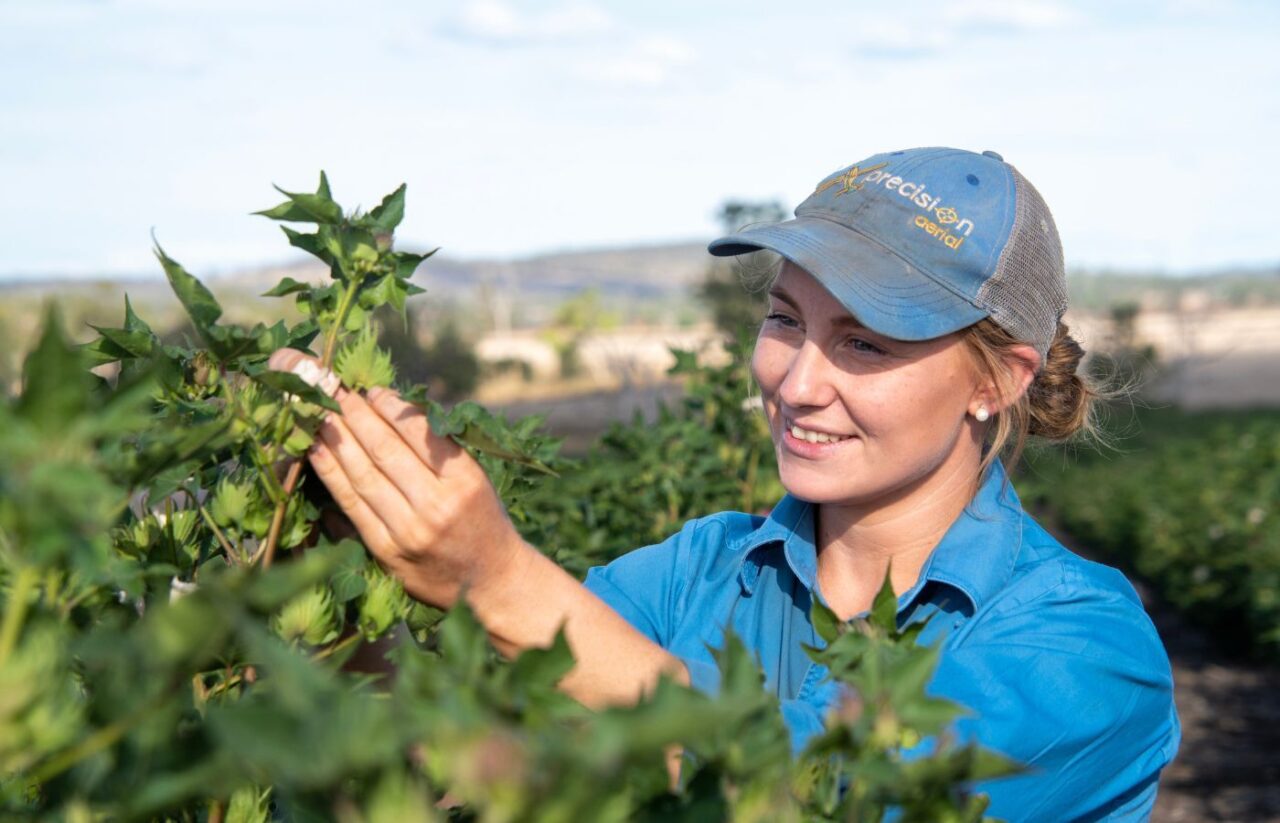
Hard work and knowledge are driving people to succeed in the cotton industry, with an increasing number of women taking up roles in the field and in leading organisations.
They don’t want to be recognised for their work based on gender, but for the skills they have.
Alice Davis, a 23-year-old agronomist based at Goondiwindi on the Queensland New South Wales border, is no different. She’s making her way in industry with her knowledge, passion and dedication to agriculture and cotton.
“I don’t want to be just a woman in the job. I want to be taken seriously because of the knowledge and work I contribute – my merit,” Alice said.
The life as an agronomist – long days on the road inspecting crops, checking for bugs and insects along with providing advice for controlling pests and weeds – was something Alice wanted from a young age.
Alice’s passion for agronomy and agriculture, was instilled early on having grown up on a cropping and cattle farm in central New South Wales.
It led her to study a Bachelor of agriculture, before securing an agronomist role with B&W Rural at Goondiwindi and North Star.
“I enjoy agronomy because it’s very rewarding. I love the connection we have to the land and with the farmers. We are providing food and fibre for the world,” she said.
“I also enjoy the technical side – the science, critical thinking, networking and problem solving that comes with finding good outcomes for the farmer.”
Alice is also the secretary of Wincott – a networking group for women in Australian cotton – a role she took on after networking with other committee members at the recent Cotton Conference.
“We are really lucky to have Wincott. The organisation’s focus isn’t just for women who are in the paddock, but also women who are involved in every aspect of the industry – from banking to agronomy, scientists and women in supportive roles to the industry who previously were not recognized,” Alice said.
This International Women’s Day, Alice is highlighting the diverse roles women play in cotton.
“The role of women in agriculture and the cotton industry is continuously growing and evolving. There’s more female agronomists and more women involved in higher positions within the industry,” Alice said.
“It’s fantastic to see that there is a lot of support and encouragement for women in the Australian cotton industry. We have a bright future in cotton, and agriculture in general, and I look forward to seeing what the next decade brings.”
In the Australian cotton industry, almost one third of cotton farmers are women, and within industry organisations such as Cotton Australia, CRDC and CottonInfo, women make up 60 per cent of the workforce.
Alice says despite more and more women joining the industry, agriculture remains male-led.
“In Agriculture, no matter what gender you are, it’s important to show your worth, skillset and build your own reputation,” Alice said.
“Networking and gaining contacts in the industry is also key to success”.
The cotton industry has opportunities to network with like-minded people through organisations such as Wincott, and events including the Australian Cotton Conference.
“For anyone looking to get involved in the industry, I encourage them to take as many opportunities presented to them as they can and be open minded,” Alice said.
“It’s also important to become involved in your local community. Farming is interconnected with rural communities, and building those networks and relationships are beneficial for everyone involved.”
